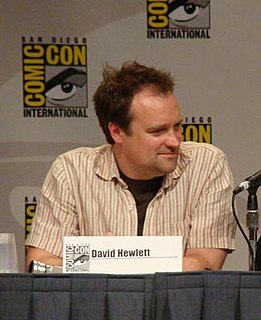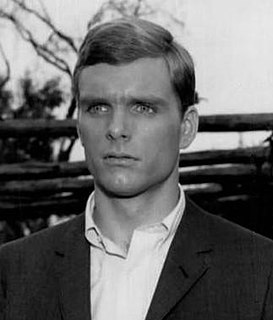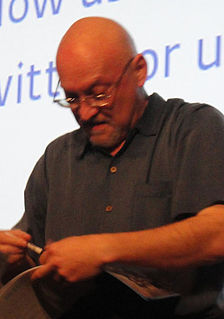A Quote by Ridley Scott
Stanley Kubrick's '2001' was the door that opened up the possibility of science fiction for me. Everything else up to then was fine, but didn't quite work for me.
Quote Topics
Related Quotes
The genius is not in how much Stanley Kubrick does in “2001: A Space Odyssey,'' but in how little. This is the work of an artist so sublimely confident that he doesn't include a single shot simply to keep our attention. He reduces each scene to its essence, and leaves it on screen long enough for us to contemplate it, to inhabit it in our imaginations. Alone among science-fiction movies, “2001'' is not concerned with thrilling us, but with inspiring our awe.
...being Lulu, it made me realize that all my life I've been living in a small, square room, with no windows and no doors. And I was fine. I was happy, even. I thought. Then someone came along and showed me there was a door in the room. One that I'd never even seen before. Then he opened it for me. Held my hand as I walked through it. And for one perfect day, I was on the other side. I was somewhere else. Someone else. And then he was gone, and I was thrown back into my little room. And now, no matter what I do, I can't seem to find that door.
At age 12 I had an obsession with Kubrick's A Clockwork Orange and then proceeded to watch all the other Kubrick films I could including a doc called Stanley Kubrick: A Life in Pictures in which it was revealed to me that he started as a photographer...I got a camera sometime shortly after, but spent many years just photographing flowers in my neighborhood.
Science fiction, as I mentioned before, writes about what is neither impossible nor possible; the fact is that, when the question of possibility comes up in science fiction, the author can only reply that nobody knows. We haven't been there yet. We haven't discovered that yet. Science fiction hasn't happened.
'Who are we?' And to me that's the essential question that's always been in science fiction. A lot of science fiction stories are - at their very best - evocations of that question. When we look up at the night sky and wonder, 'Is there anyone else out there?' we're also asking who we are we in relation to them.
Who are we? And to me that's the essential question that's always been in science fiction. A lot of science fiction stories are - at their very best - evocations of that question. When we look up at the night sky and wonder, "Is there anyone else out there?" we're also asking who we are we in relation to them.
There are many other writers whose work I admire tremendously, but none whose work struck me at just the right young age. Jack Vance taught me that speculative fiction, science fiction, could be wonderfully and liberatingly stylistic. It didn't have to be pulp stuff. He really changed my writing and my view of science fiction, so if nothing else, my little homage to him in the novelette I wrote for that anthology is my thank-you to him. He helped me see that any genre can have excellent writing in it.





































